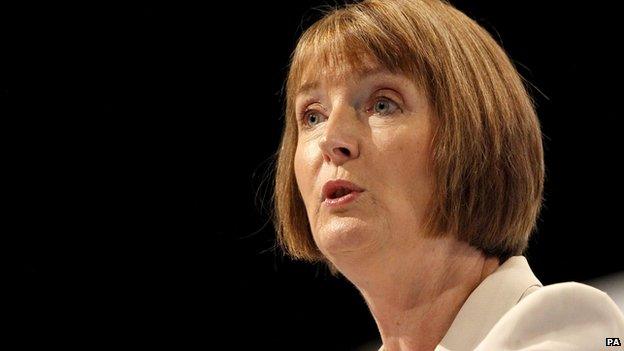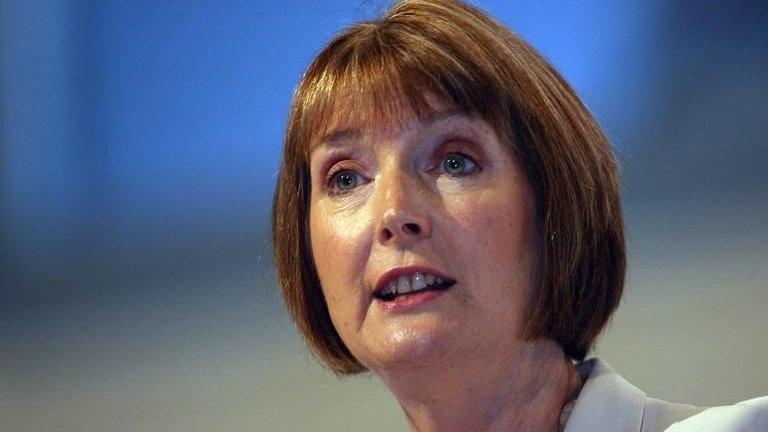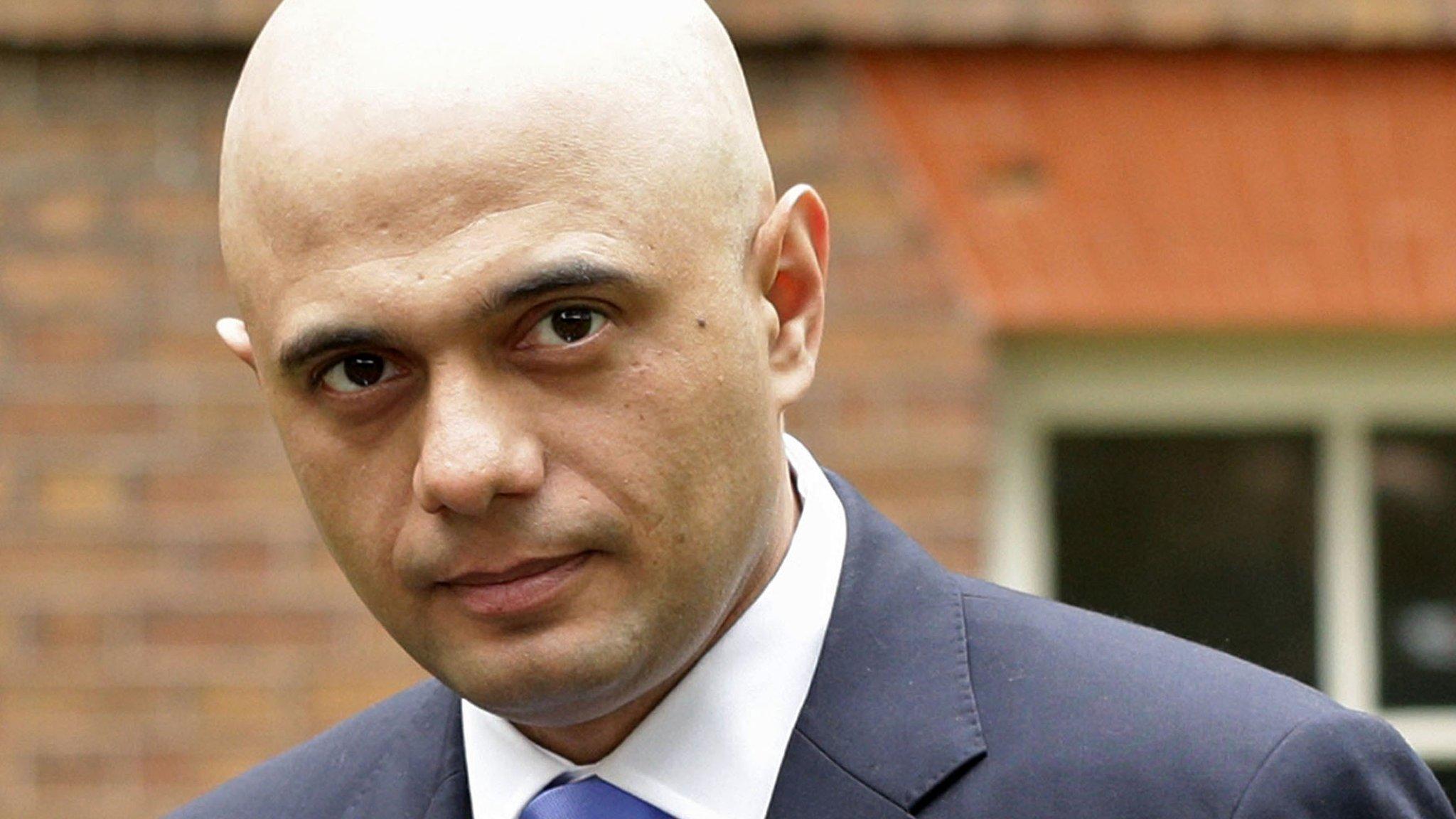Harriet Harman says state-funded arts needs to be more inclusive
- Published

Harriet Harman says the consultation will shape policy on the arts in the Labour manifesto
Publically-funded arts organisations should make a greater effort to be inclusive, the shadow culture secretary Harriet Harman has urged.
She said there had to be "committed, focused intervention" to change audiences in certain arts venues.
Ms Harman was speaking on Monday at the launch of a Labour consultation document on young people and the arts.
The arts, she said, were in danger of becoming "the prerogative of a metropolitan elite".
The Labour deputy leader said arts funding could not be left to the private market or philanthropy.
"But there is a democratic imperative for the arts to show why the hard-pressed tax payer - struggling with the cost of living crisis - should fund the arts," she told an audience of arts leaders at The Roundhouse in London.
"Public funding is only sustainable to the extent that the public who are paying for it support it."
She said that arts venue programmes would often include the names of companies or philanthropists who had given money but the biggest donor - the tax payer - was "virtually invisible".
Ms Harman said: "Just like private donors can't be taken for granted - nor can the public donor. So they've got to see what goes in. But they've also got to see what comes out of it."
The public would not support the arts, she added, if there was "even a suspicion that its disproportionately something for the elite".
Ms Harman said: "When I went to the Opera House last week - even from the cheapest seats in the house - I couldn't see in the audience anyone who wasn't like myself: White, metropolitan and middle class.
"For institutions which get public funds, it can't be like that. To change audiences, there has to be committed, focused intervention."
Ms Harman, who is MP for Camberwell and Peckham, said she enjoyed the BBC Proms at the Albert Hall but said she didn't "see people from my own constituency there".
She said that the arts were in danger of becoming "more remote" from young people in disadvantaged communities and in the regions. She claimed that participation in arts activities by primary school children was down by a third under the coalition.
Arts and creative subjects in education should not be seen as a "soft touch", she added. "Nicola Benedetti rightly highlights the discipline, focus and application that music demands. And try telling Deborah Bull or Arlene Phillips that dance is a soft option."
Describing arts provision in schools as "patchy", she said one of the key questions in the consultation was the role Ofsted should play in ensuring high standards in creative learning.
"Should a school be able to be rated as outstanding if it doesn't provide an outstanding cultural education?"
Last week. the new Culture Secretary Sajid Javid urged the arts community to ensure that "culture is for everyone".
In his first major speech to the arts sector since taking up the post in April, he said that "too many Britons are culturally disenfranchised" and "excluded from what should be our shared cultural life".
- Published4 June 2014

- Published6 June 2014
